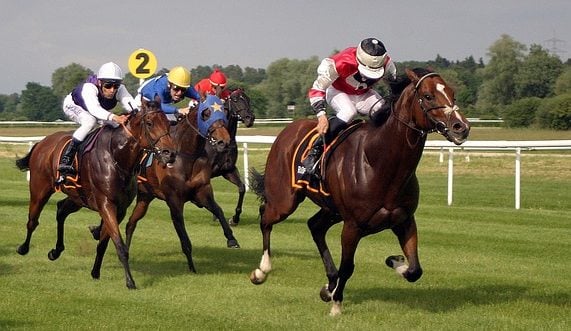A suspect outbreak of African Horse Sickness is being investigated in the Mamre area of the Western Cape following the death of several horses in that area.
Post mortems have been done on two horses in Mamre by the State Veterinary Services and samples have been sent to the Onderstepoort Veterinary Institute and the Equine Research Centre for analysis. Preliminary results on molecular testing (RT-PCR) indicate possible African Horse Sickness but this has yet to be confirmed by further virus isolation, the results of which are still outstanding.
African Horse Sickness is transmitted by midges, which need an infected horse as a source of virus for spread of the disease. The disease has the potential to spread very rapidly to other horses, irrespective of farm boundaries. The disease has to date not been present in the African Horse Sickness Controlled Area of the Western Cape since 2006.
The infected farm is situated within the African Horse Sickness Surveillance Zone of the Western Cape Province and approximately 50 km from the African Horse Sickness Free Area, which is the only area in South Africa from where horses are accepted for export to other countries. The surveillance area acts as an early warning system for the free area and horses are therefore normally not vaccinated against the disease in accordance with the export protocol negotiated with the European Commission.
The Veterinary Services of the Western Cape is directing an intensive epidemiological investigation in a wide area (10 km zone initially) surrounding the farm to try and establish a possible source of the infection.
• The magisterial district of Malmesbury is hereby placed under an immediate movement ban for all equines (horses, donkeys, mules and zebra).
• All movements have to be approved by the State Veterinarian Boland, whose office will issue a permit (red-cross permit) for movement. They can be contacted on Fax 021 808 5125 or Tel 021 808 5026 or 021 808 5253.
• Officials of Veterinary Services in conjunction with private veterinary practitioners will immediately start vaccinating horses in the area surrounding the outbreak.
• Horse owners in the near vicinity of the outbreak are also strongly advised to stable their horses overnight from 2 hours before sunset until 2 hours after sunrise while the midges are active.
• Horses should also be treated with insecticides twice daily.
• No horses are allowed to move into or out of or through the affected area while owners of horses bordering the risk area are cautioned to restrict unnecessary movement of their animals out of the area. These measures will serve to limit the spread of the disease.
The OIE (World Organisation for Animal Health) and the European Commission has already been informed by the National Department of Agriculture of the outbreak of the disease. The status of the free zone and the possible institution of export embargos will be dependent on the extent and the severity of the outbreak.
Enquiries: Dr P. Koen, Acting Chief Director Veterinary Services, Western Cape Province, Tel 021 808 5253









